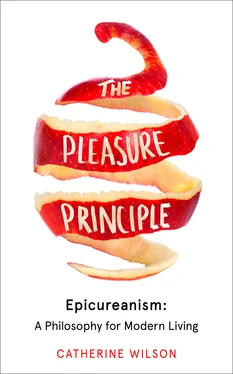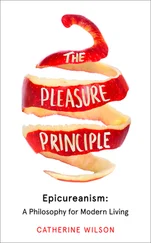Before I start, more about me: as a lecturer, I have taught philosophy in the US, Britain, Canada and Germany. As a researcher I have worked in archives and libraries, published books and articles, and engaged in controversies with other academics. Many of my writings focus on the physical and life sciences of the 17th and 18th centuries, and especially on the concept of the microworld of subvisible organisms and material particles. But all along, thanks to early exposure as a teenager through volunteer activities and work camps, I have been interested in the problems of warfare, poverty and social justice. Both sets of interests are reflected in this book, which is addressed to some of the problems of modernity, both theoretical and practical, as they face us in contemporary life.
Like most readers, I am concerned about the array of political and economic problems affecting us and our children and causing us anxiety even when we live in conditions of affluence. There is increasing economic inequality, fostering resentment and violence; the corruption of democratic processes on a mass scale; the existential threats posed by climate change and nuclear, chemical and biological weapons; the depletion of environmental resources, including soil and water; the loss of plant and animal species, and the toxification of our air and our oceans.
The modern economy uses vast quantities of energy from oil and gas (and from the atom) to transform oil and other raw materials into consumer products, only a few of which make our lives better. The rest stuffs and fattens our closets and drawers and piles up as waste in landfills. And it does not make us happy. Mood disturbances, especially depression, afflict large segments of the population, and many people drink too much alcohol or are addicted to stimulants or tranquillisers. Over one-third of Americans are ‘completely inactive’, and sleep disturbances from artificial light as well as immune dysregulation arise from lack of exposure to natural sunlight. ‘In effect,’ as one observer comments, ‘humans have dragged a body with a long hominid history into an overfed, malnourished, sedentary, sunlight-deficient, sleep-deprived, competitive, inequitable and socially isolating environment with dire consequences.’ We live longer than most of our ancestors but in a sicklier fashion. And from every pain or deprivation, somebody benefits. Pharmaceutical manufacturers benefit from our sugar-induced diabetes and our mental-health problems; oil companies from the destruction of wilderness and poisoning of the atmosphere; the chemicals industry and their stockholders from the use of plastics; the automobile industry from the absence of public transportation; and the prison industry from the desperation and violence that characterise the poorest neighbourhoods.
At the same time, we face problems in our private lives that reflect the age-old human condition, intensified by the social changes of the last fifty to one hundred years. The stresses of urban life, the monotony of suburban life, bad jobs and bad bosses, sexual predation and confusion affect almost all of us.
Tinkering around the edges of our problems with scented candles, new exercise routines and productivity apps isn’t going to help much in the long-run, and no philosopher who is honest about it can give you a formula for being happy – certainly not for being happy all the time. Nevertheless, philosophy can point the way to the sources of satisfaction that are available to almost every human being and to strategies for facing off against the major threats to human happiness. These threats lie in wait for us in the form of outsized ambitions, fear of failure and feelings of futility. The history of philosophy can also help us to see the difference between what philosophers call the necessary and the contingent, or accidental in our historical and social conditions, and to see how the moral commitments of individuals have made a positive difference.
In this book, I’ll explain how the ancient Epicureans saw the world and how a present-day Epicurean sees it. At the same time, I’ll try to be honest and objective. Epicureanism was always a controversial philosophy, and it needs rethinking in some respects. Philosophers have their own irrational enthusiasms, and their views should never be accepted on faith without critical scrutiny. As far as that’s concerned, I expect readers to roll their eyes at some of my opinions. In the end, you may find the Epicurean system as I present it here compelling and useful in working out your own ideas about how to live. Or you may find it offputting and see in its very problems helpful directions for living in a different way. In any case, real Epicureanism is probably considerably different from what you might have thought.
As reported by Lucretius:
[Epicurus] saw that almost everything that necessity demands for subsistence had already been provided for mortals … he saw, too, that they possessed power, with wealth, honour and glory, and took pride in the good reputation of their children; and yet he found that, notwithstanding this prosperity, all of them privately had hearts ranked with anxiety …
The Epicureans believed that most people have the wrong conception of the nature of the universe and their place in it. They wanted to replace indoctrination and wishful thinking with respect for reality. They sought to uncover the real sources of joy and misery in our finite lives and to balance the ethical treatment of others with our own self-interest. This required attention to opportunities for ‘choice and avoidance’ in everyday life. Three of Epicurus’s most famous (also his most infamous) teachings were: first, everything that exists, including the human mind, is composed of material atoms; second, if a God or gods exist, it or they did not create our world, and it or they do not care about humanity; and third, there is no life after death and no other world to go to.
From these three basic and interrelated claims – the material nature of everything, including the human individual, the absence of divine oversight of the world and the finality of death – the Epicureans worked out a system covering both the natural world and the human world. They tried, ambitiously, though not always convincingly, to explain the origins of the cosmos, the causes of volcanoes and earthquakes, the evolution of life and the origins of war, poverty, dominion and servitude, appealing only to physical processes and human inventions and decisions. They explained what morality and justice are all about and warned of the dangers of belligerent and kleptocratic rulers. They made suggestions as to how to live with less fear and regret and what attitude to take in the face of adversity. Unlike their main philosophical rivals, the Stoics, they did not believe the mind is all-powerful in the face of adversity or that we should strive to repress our emotions, griefs and passions. Their moral philosophy is relational rather than individualistic. And unlike the other, more influential schools of ancient philosophy, especially the Platonic and the Aristotelian, the Epicureans welcomed women into the sect.
Central to their understanding and to their views on social equality was their distinction between nature and what they termed ‘convention’. By nature they meant the realm of living things – what we would call the plant and animal kingdoms – along with light and fire, the varied landscapes and waterscapes of our planet, and its celestial objects, the sun, moon and stars. Nature, they recognised, presents an ever-changing spectacle, but it is in many ways predictable. The seasons come around on a regular basis, and animals produce offspring that resemble them from generation to generation. Fire can be counted upon to burn dry straw.
By convention the Epicureans meant perceptions, attitudes and beliefs dependent on our specifically human constitution and reflected in our categories and the words we use. Epicurus’s Greek forerunner, the philosopher Democritus, stated: ‘By convention sweet, by convention bitter, by convention hot, by convention cold, by convention colour: but in reality, atoms and the void.’ The sweetness of honey and the bitterness of rocket depend on our taste receptors, and colours, too, are perceived differently by different animal species and even by different individual humans. Poverty and marriage are not found in nature; they are understood differently by different groups of humans and have different implications, depending on where you are and what group you identify with.
Читать дальше












